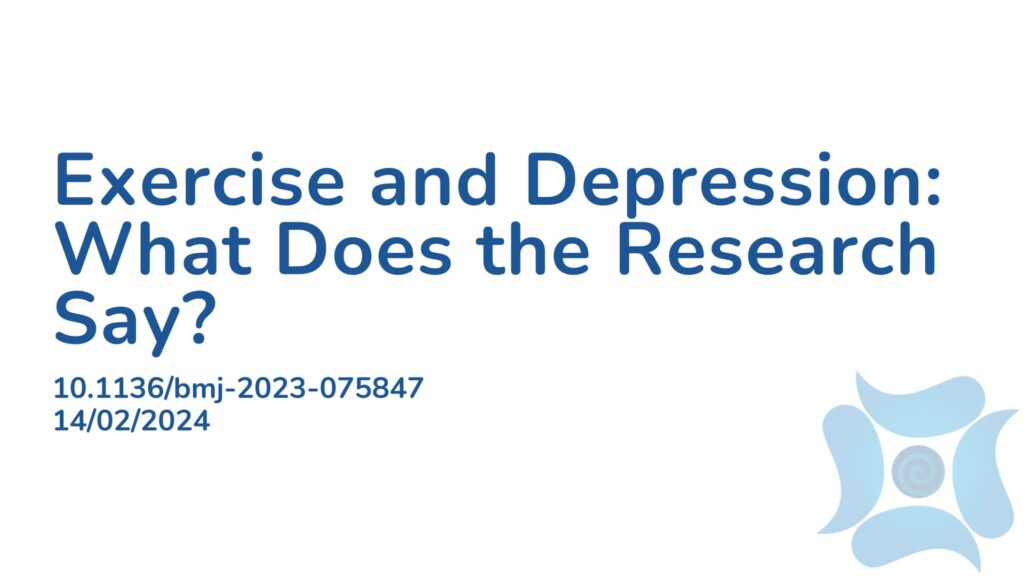Summary:
Major depressive disorder (MDD) is a leading global cause of disability, impacting life satisfaction more than debt, divorce, and diabetes. Despite many traditional treatments being available like medicine and therapy, many individuals with MDD remain unresponsive to treatment. Exercise shows promise as a mental health intervention, offering benefits for both mental and physical health. However, clinical guidelines lack consistent recommendations regarding the type and dosage of exercise for depression. This study is a comprehensive search of randomized trials to identify the optimal exercise dose and type for depression, considering factors such as sex, age, and baseline depression severity. 218 studies with a total of 14,170 participants were included. The results showed that exercise is an effective treatment for depression, with walking or jogging, yoga, and strength training more effective than other exercises, particularly of higher intensity. Exercise also showed to be equally effective for people with and without co-morbidities and irrelevant of the severity of their depression. The authors suggest exercise could be considered alongside psycho-therapy and anti-depressants as core treatments for depression.
Abstract:
Objective: To identify the optimal dose and modality of exercise for treating major depressive disorder, compared with psychotherapy, antidepressants, and control conditions.
Design: Systematic review and network meta-analysis.
Methods: Screening, data extraction, coding, and risk of bias assessment were performed independently and in duplicate. Bayesian arm based, multilevel network meta-analyses were performed for the primary analyses. Quality of the evidence for each arm was graded using the confidence in network meta-analysis (CINeMA) online tool.
Data sources: Cochrane Library, Medline, Embase, SPORTDiscus, and PsycINFO databases. Eligibility criteria for selecting studies: Any randomised trial with exercise arms for participants meeting clinical cut-offs for major depression.
Results: 218 unique studies with a total of 495 arms and 14 170 participants were included. Compared with active controls (eg, usual care, placebo tablet), moderate reductions in depression were found for walking or jogging (n=1210, κ=51, Hedges’ g −0.62, 95% credible interval −0.80 to −0.45), yoga (n=1047, κ=33, g −0.55, −0.73 to −0.36), strength training (n=643, κ=22, g −0.49, −0.69 to −0.29), mixed aerobic exercises (n=1286, κ=51, g −0.43, −0.61 to −0.24), and tai chi or qigong (n=343, κ=12, g −0.42, −0.65 to −0.21). The effects of exercise were proportional to the intensity prescribed. Strength training and yoga appeared to be the most acceptable modalities. Results appeared robust to publication bias, but only one study met the Cochrane criteria for low risk of bias. As a result, confidence in accordance with CINeMA was low for walking or jogging and very low for other treatments.
Conclusions: Exercise is an effective treatment for depression, with walking or jogging, yoga, and strength training more effective than other exercises, particularly when intense. Yoga and strength training were well tolerated compared with other treatments. Exercise appeared equally effective for people with and without comorbidities and with different baseline levels of depression. To mitigate expectancy effects, future studies could aim to blind participants and staff. These forms of exercise could be considered alongside psychotherapy and antidepressants as core treatments for depression.
Article Publication Date: 14/02/2024
DOI: 10.1136/bmj-2023-075847



